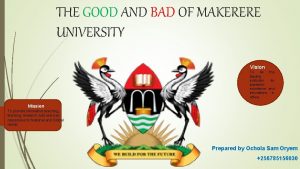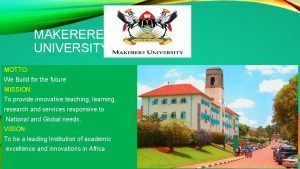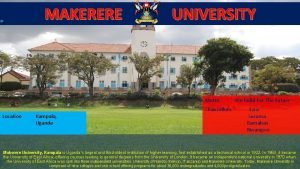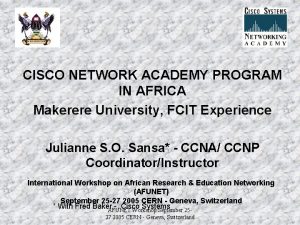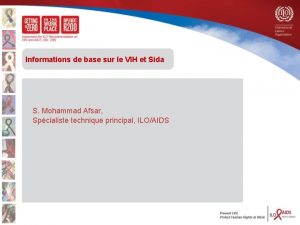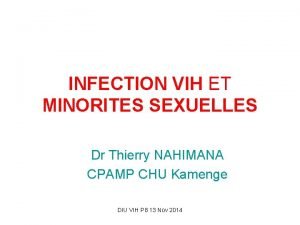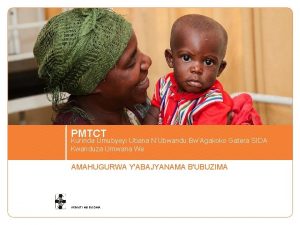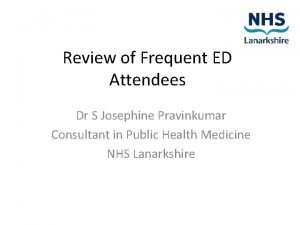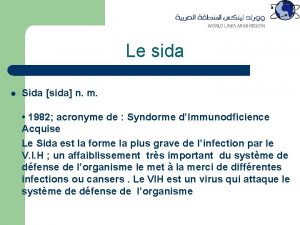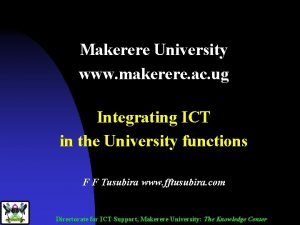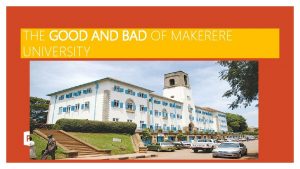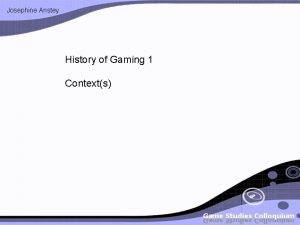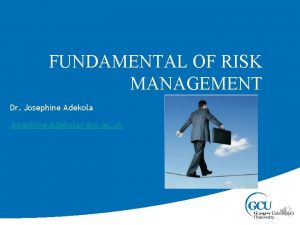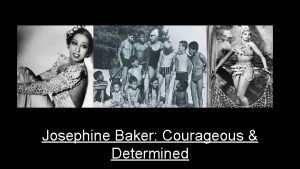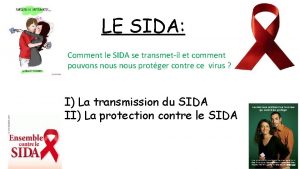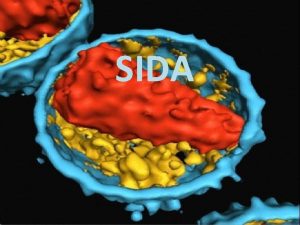Josephine Ahikire SWGSCHUSS Sida support to Makerere University












- Slides: 12

Josephine Ahikire SWGS/CHUSS

Sida support to Makerere University The PI and research team at MAK Social Sciences My research team: Dr. Amon A. Mwiine (Ph. D Stellenbosch) Ms. Harriet Pamara (graduate, PD Iceland Ms. Jovah Katushabe (MA Gender Studies)



When we talk about rights there are two kinds: 1. the right to exclude others- registered with a paper 2. The right to be included- inherent right as a citizen, by virtue of being human

The inherent dilemma of customary tenure where rights are allocated and sanctioned following the customs of a given community. Increasing individualisation of land Men’s abuse of power- in the name of custom Limited dec. making & right to fruits of labour on land Poor land governance Women’s limited agency- the difficulty to translate the letter on property rights

“Land belongs to citizens provides that land belongs to the people, to the citizens of Uganda, vested in them in accordance with the land tenure systems provided for in the Constitution (Art. 237). These are: Mailo, customary, leasehold, and freehold. Interests under customary can be registered – Certificate of Customary Ownership (What does this mean? ) The voice from the land boards- this is utter confusion!!

Section 39 requires the prior written consent of both spouses in transactions involving family holdings, defined as land on which the family ordinarily resides and from which they derive sustenance. Section 28 prohibits decisions affecting customary land that deny women access to ownership, occupation or use of any land, as well as decisions that impose conditions violating constitutional provisions protecting women. The Act requires land management bodies and institutions to have female representation. The Uganda Land Commission must include at least one female among its five members, one-third of the membership of the District Land Boards must be female, and land committees at the parish level must have at least one female among their four members. Under Section 17 (4) (b) at least one-third of the members of the Communal Land Management Association must be female. These are Associations which may be formed under the Land Act by any group of persons on any land for any purpose connected with communal land ownership and management of land.

The answer from Rukiga is NO The answer from Amuru is may be The answer from Kayunga is – none of the above



More Dialogue on customary tenure and women’s land rights -Public social debate informed by the situations on the ground Knowledge , Knowledge – beyond generalisation – esp. what are the practices on the ground, how is customary tenure actualised? How are women using the existing rights- albeit a rather patriarchal template Blind registration may cause more exclusion of women
